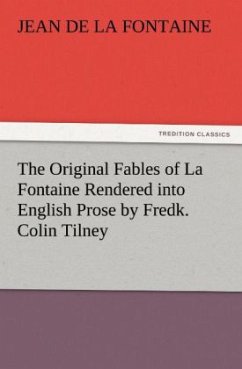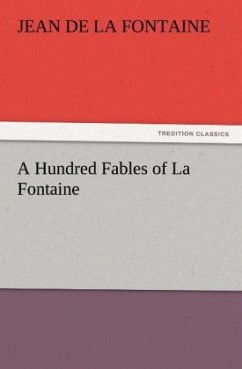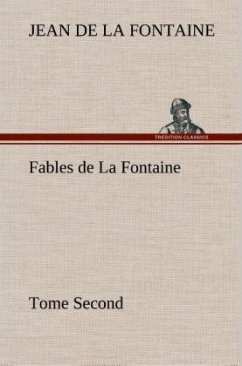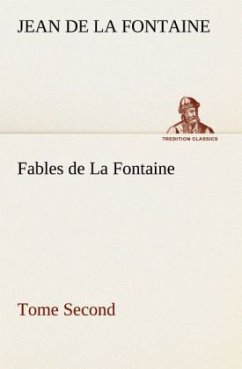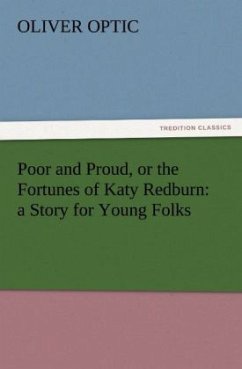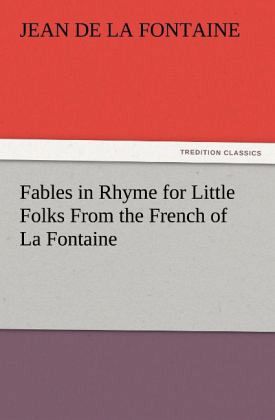
Fables in Rhyme for Little Folks From the French of La Fontaine
Versandkostenfrei!
Versandfertig in 1-2 Wochen
8,90 €
inkl. MwSt.

PAYBACK Punkte
0 °P sammeln!
This book is part of the TREDITION CLASSICS series. The creators of this series are united by passion for literature and driven by the intention of making all public domain books available in printed format again - worldwide. At tredition we believe that a great book never goes out of style. Several mostly non-profit literature projects provide content to tredition. To support their good work, tredition donates a portion of the proceeds from each sold copy. As a reader of a TREDITION CLASSICS book, you support our mission to save many of the amazing works of world literature from oblivion.



